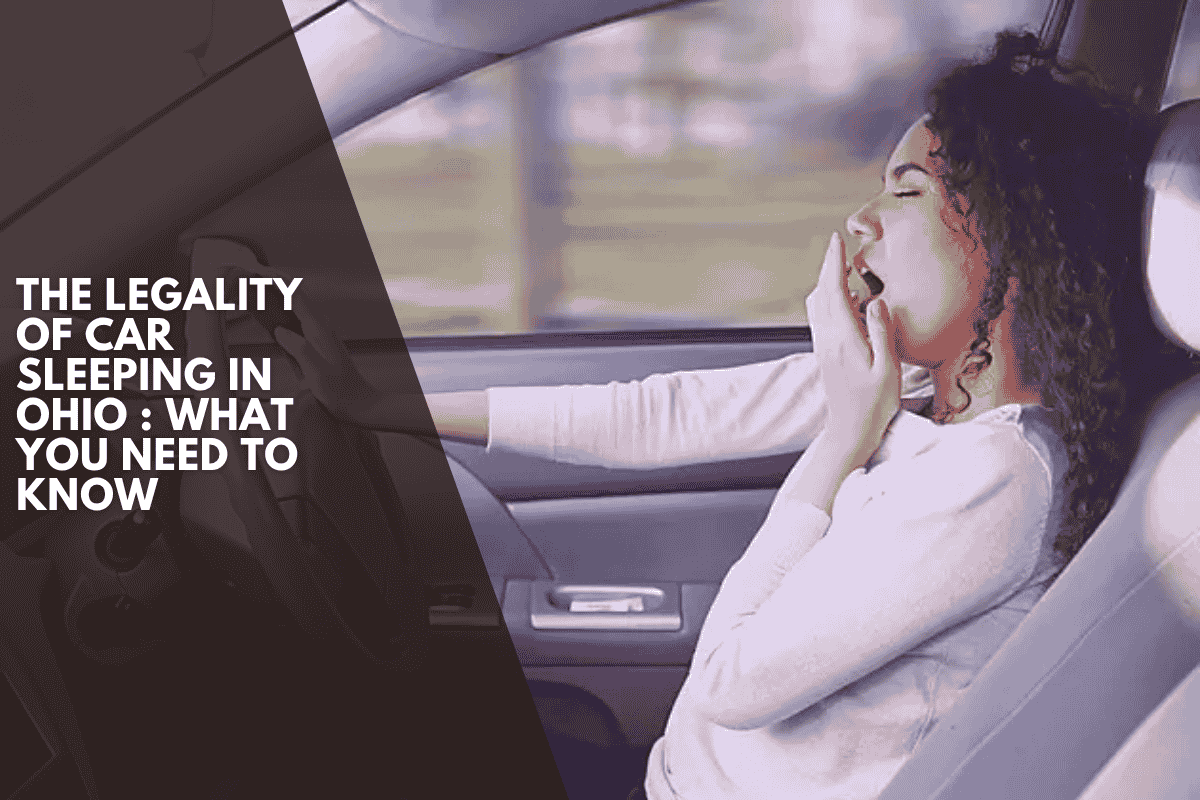Sleeping in your car in Ohio is generally legal at the state level, but the specifics depend heavily on where you park and local regulations. Here’s a comprehensive overview of what drivers need to know in 2025.
Statewide Rules
Ohio law does not prohibit sleeping in your vehicle. In fact, the state encourages tired drivers to use designated rest areas along highways to rest and avoid accidents caused by fatigue. You can legally sleep in your car overnight at these rest stops, which are open 24 hours a day.
There is no statewide time limit for how long you can remain in your vehicle at a rest area, as long as you are present in the car. The only restriction is a three-hour limit for leaving a vehicle unattended at a rest stop, but this does not apply if you are inside the car and resting.
Local Ordinances and City Restrictions
While state law is permissive, many cities in Ohio have their own rules that can make sleeping in your car illegal in certain locations. Major cities such as Cleveland and Cincinnati explicitly prohibit parking vehicles used as living spaces on public streets.
Violations can result in fines over $100, with penalties increasing for repeat offenses. Local ordinances may also ban overnight parking in public lots or on certain streets, so always check for posted signs or municipal regulations before settling in for the night.
Private Property and Business Lots
You may sleep in your car on private property, such as your driveway or with the property owner’s permission. Many 24-hour retailers, like some Walmart stores, may allow overnight parking, but it’s essential to get permission from the business and check for any posted restrictions. Truck stops and campgrounds are also common legal options, though campgrounds may charge a fee.
Parking Lots and Rest Areas
Most parking lots, especially those belonging to businesses, prohibit overnight stays unless you have explicit permission. Security or law enforcement may ask you to leave if you are found sleeping in your car without authorization. At highway rest areas, sleeping is permitted for as long as you need, provided you are not violating any posted rules or leaving your vehicle unattended for more than three hours.
Special Considerations
If you are under the influence of alcohol or drugs, sleeping in your car can lead to a DUI charge—even if the vehicle is stationary—if you are in the driver’s seat and have the keys accessible3. Always ensure you are parked legally and not causing a hazard or obstruction.
Summary
Legal at State Level: Sleeping in your car is allowed at Ohio rest areas and on private property with permission.
Local Laws Vary: Many cities ban overnight car sleeping on public streets or lots—check local ordinances.
Rest Areas: No time limit if you remain in your car; three-hour limit applies only to unattended vehicles.
Private Property: Always obtain permission to avoid trespassing.
DUI Risk: Never sleep in your car while intoxicated, as you could still be charged.
In short, while Ohio law is generally permissive, always verify local rules and posted signs to avoid fines or legal trouble when sleeping in your car.
Sources
[1] https://www.aferiy.com/blogs/news/is-it-illegal-to-sleep-in-your-car-what-states
[2] https://www.warfortol.com/post/illegal-to-sleep-in-car-ohio
[3] https://www.keatingfirmlaw.com/post/illegal-to-sleep-in-your-car-ohio
[4] https://reolink.com/blog/is-it-illegal-to-sleep-in-your-car/
[5] https://www.mmdefense.law/blog/dui-for-sleeping-in-car/











